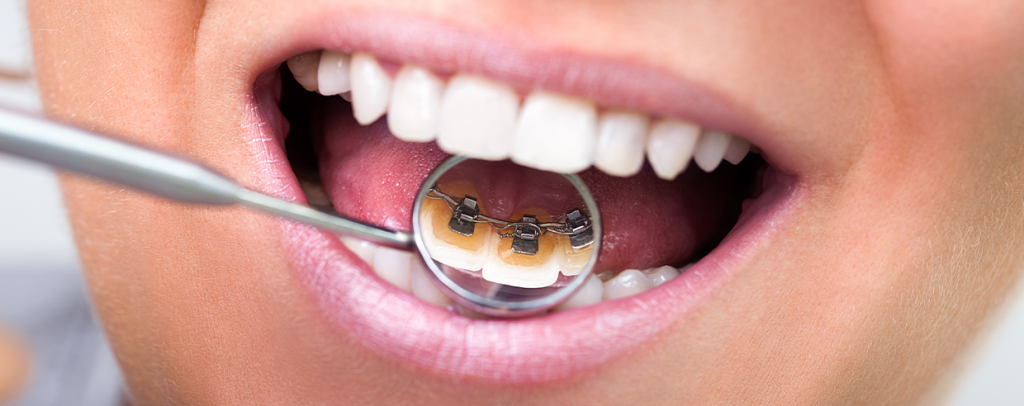Periodontics is a specialized field of dentistry focused on the prevention, diagnosis, and treatment of gum inflammation and conditions affecting the supporting structures of your teeth. To begin with, you may be wondering, what is periodontitis? It is an advanced stage of gum disease, characterized by inflammation of the supporting structures around your teeth. It …
Periodontics is a specialized field of dentistry focused on the prevention, diagnosis, and treatment of gum inflammation and conditions affecting the supporting structures of your teeth.
To begin with, you may be wondering, what is periodontitis? It is an advanced stage of gum disease, characterized by inflammation of the supporting structures around your teeth. It involves the progressive loss of the bone that holds the teeth in place, leading to symptoms such as swollen and bleeding gums, persistent bad breath, and, in severe cases, tooth mobility.
Early detection and professional intervention are crucial in managing gum inflammation and preventing further oral health complications. If you have gingivitis, do not delay any longer and make an appointment with Tower Dental, the best dental treatment center in Turkey. Do not forget that taking care of your oral and dental health is also very effective on your general health.
How Do I Know If I Have Gum Inflammation?
Identifying gum inflammation involves paying attention to various signs and symptoms. Common indicators of your gingivitis include:
- Bleeding gums
- Swollen or red gums
- Persistent bad breath
- Receding gums
- Sensitive teeth
- Pain or Discomfort
- Changes in tooth alignment
Regular dental check-ups are crucial for early detection and treatment of gum disease. If you notice any of these signs, it’s advisable to consult with a dentist promptly to address the issue and prevent further complications.
What Are the Causes of Gum Inflammation?
In addition to the symptoms of gingivitis, it is useful to know the causes of this disease in order to prevent this disease. Gum inflammation develops due to a combination of factors related to poor oral hygiene and certain risk factors. The primary cause is the build-up of plaque, a sticky layer of bacteria, on your teeth and gums. Plaque can be effectively prevented by your regular brushing habit and flossing. When you do not do this, it can harden into tartar and lead to inflammation and infection.
Poor oral hygiene practices contribute significantly to the progression of gingivitis. In addition, heavy smoking and tobacco use are also important risk factors for gum disease. Tobacco weakens your immune system, making it harder for your body to fight infection. It also inhibits the healing process by restricting blood flow to your gums. In addition, some medical conditions, such as diabetes, can increase susceptibility to gum disease. If you have diabetes, your body cannot regulate your blood sugar well. This makes you more prone to infections, including periodontal infections.
Other Factors Causing Gum Inlammation
Hormonal changes, especially during pregnancy, menstruation, and menopause, can potentially contribute to gingivitis by making your gums more sensitive and prone to inflammation. Genetic predisposition can also play a role here. If you have a family history of gum disease, you may be more susceptible to the disease, even if you take proper oral care.
Finally, poor diet, stress, and certain medications that reduce saliva flow or cause gum overgrowth can also contribute to the development and progression of gum inflammation. Thorough oral care, along with a healthy lifestyle, is essential in preventing and managing gum disease. Do not forget to get support from your dentist during regular examinations with them.
How is Gum Inflammation Treated?
Once you understand the symptoms and causes of gum inflammation, you may also want to learn how it is treated. If your gingivitis is not too advanced, professional dental cleaning, also known as scaling and root planing, may be sufficient. This involves removing plaque and tartar from your teeth and roots and smoothing rough areas to prevent further bacterial growth.
In more advanced cases of periodontitis, additional treatments may be necessary. This can include surgical procedures such as flap surgery or pocket reduction surgery, where the gum tissue is lifted, and the roots are cleaned more thoroughly. In some cases, tissue or bone grafts may be needed to regenerate damaged structures. If you have a bacterial infection, antibiotics in the form of oral medications or topical treatments may be prescribed by your dentist to control it. In some cases, antimicrobial mouthwashes may also be recommended to reduce the bacterial load in your oral cavity.
Conclusion
Maintaining a healthy lifestyle, including a balanced diet and stress management, contributes to your overall gum health. If you have been treated, regular dental check-ups are very important to monitor your progress address any concerns immediately, and prevent the recurrence of gingivitis. Close co-operation with a specialist dentist is essential for the proper management and long-term health of your gums. If you wonder how much gum disease treatment costs in Turkey and have any other questions about the procedure, contact Tower Dental.








